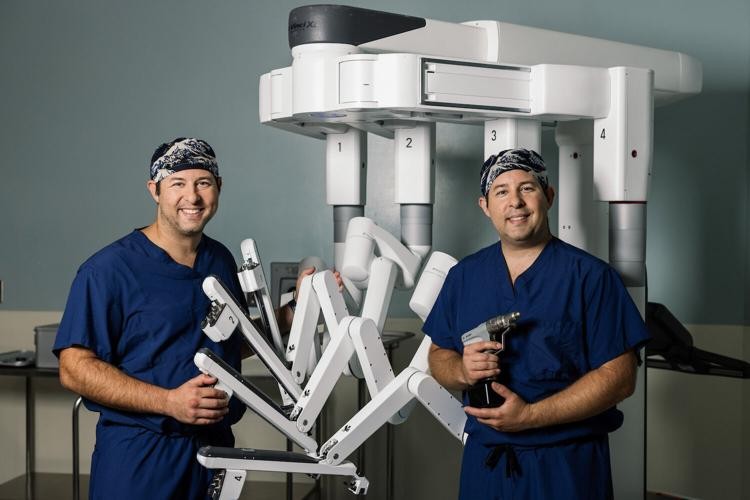We were lucky to catch up with Mark and Matt Schultzel recently and have shared our conversation below.
Mark and Matt, appreciate you joining us today. Over the course of your career, have you seen or experienced your field completely flip-flop or change course on something?
Matthew: The most recent evolution has been the change of standard of care to minimally-invasive procedures, largely thanks to technological advances in robotic surgery. When I first started into practice, I was one of the only surgeons in the region performing robotic procedures at a high volume, and this was criticized by older competitors who did not have much experience on the robot. Fast-forward to today, where robotic and minimally-invasive procedures have become the standard of care due to their reduction in complications and comorbidities when compared to open or hand-assisted procedures, and more and more surgeons in our community are performing lifesaving robotic surgeries. We can even perform these surgeries now using a single “port” or entry site, and I have been lucky enough to recently have performed the first series of single-port gallbladder procedures in the USA. These less invasive techniques are amazing because they leave less risk of disfiguring scars and internal adhesions, allowing us to preserve patients’ natural anatomies as much as possible.
Mark: In a world where healthcare has become very impersonal and transactional in nature, the shift back to concierge-style medicine is a big change in the positive direction. We have been able to achieve this by harnessing health-technology applications to efficiency and conveniently connect with our patients, sometimes right in their own living rooms! For both of our practices, we use this tech to give our patients nearly 24/7 access to our team, and the ability to reach out to us and receive prompt responses and advice significantly improves the level of care we are able to provide, resulting in happy patient experiences with excellent results.
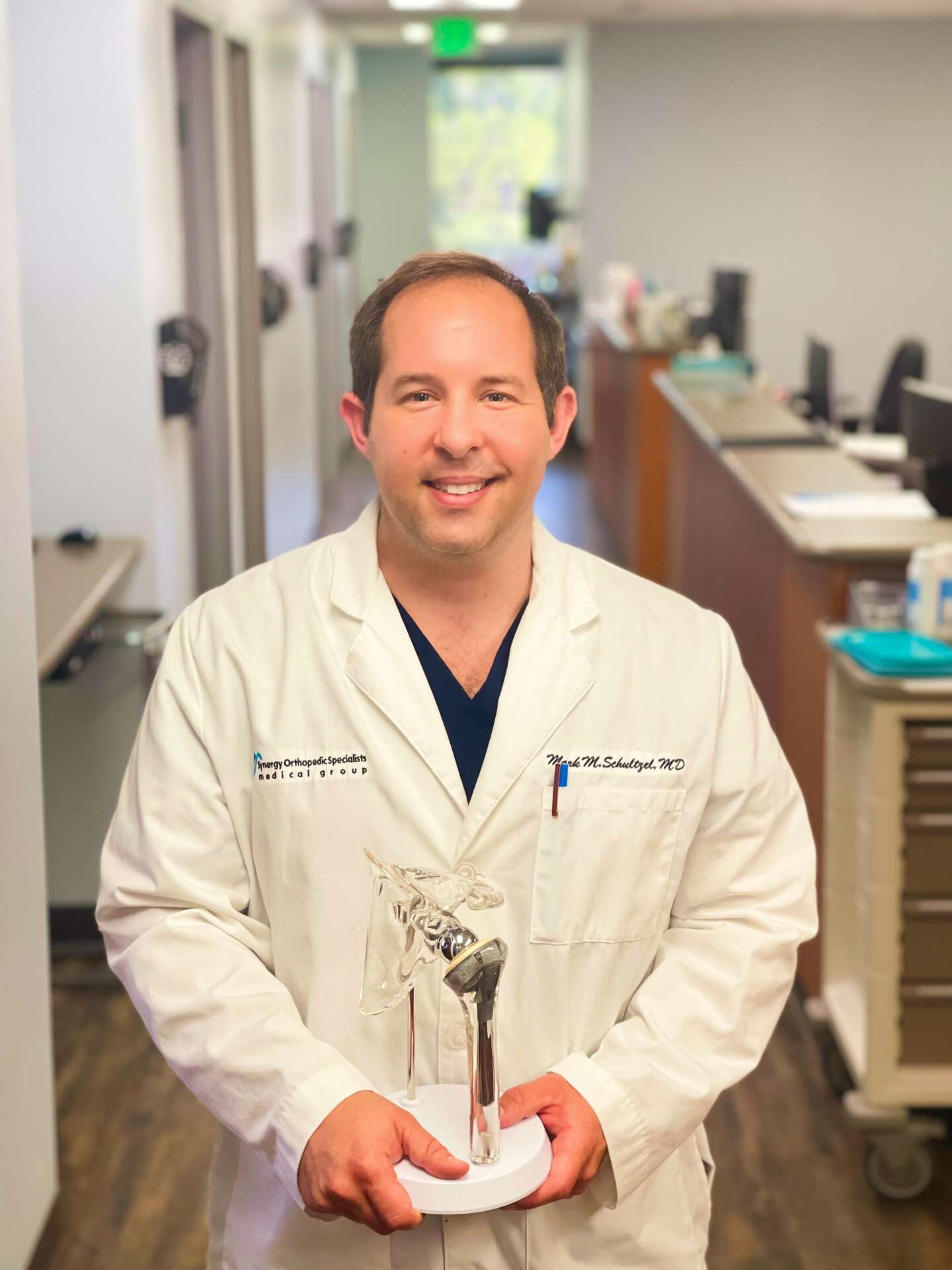
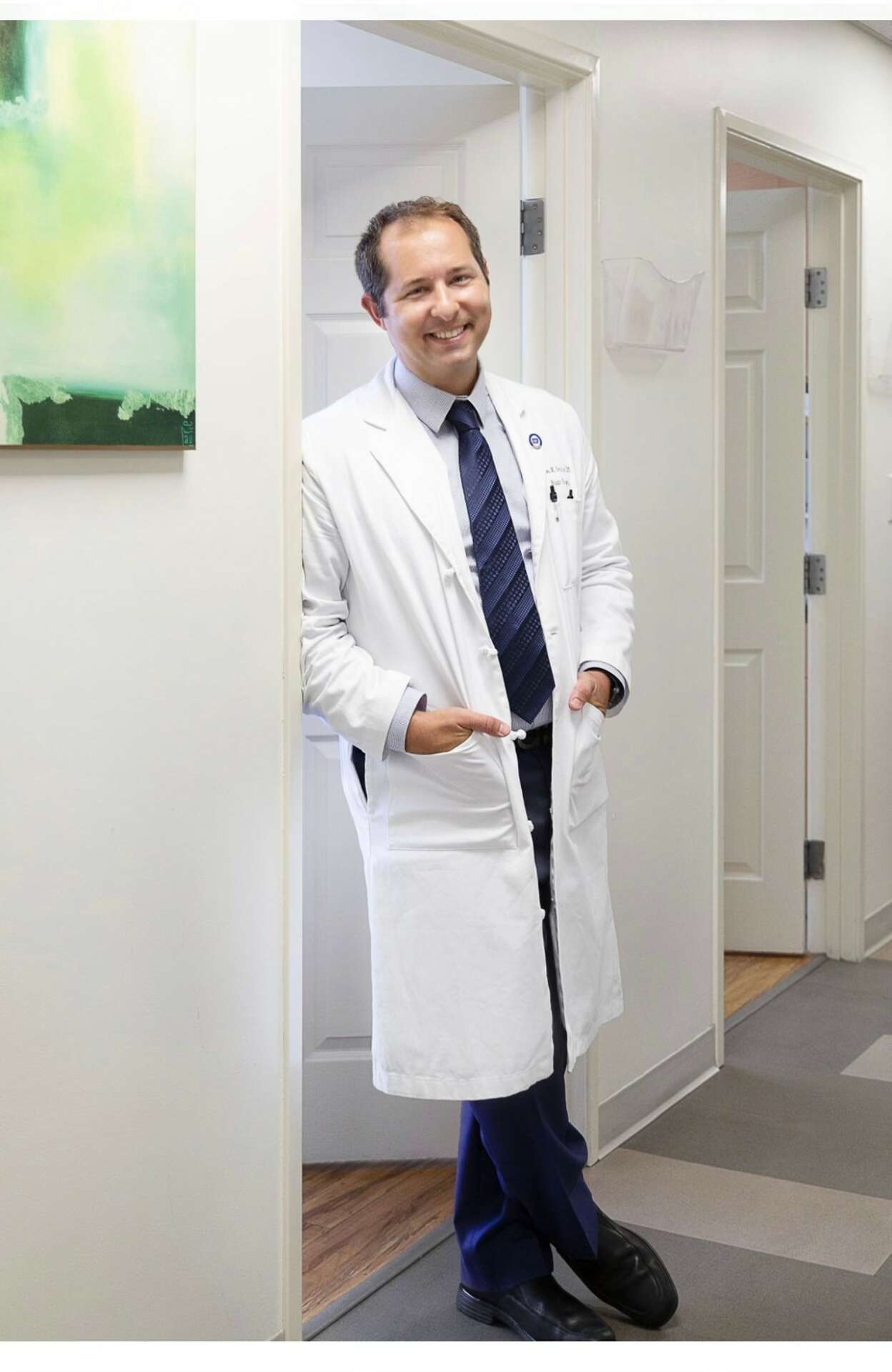
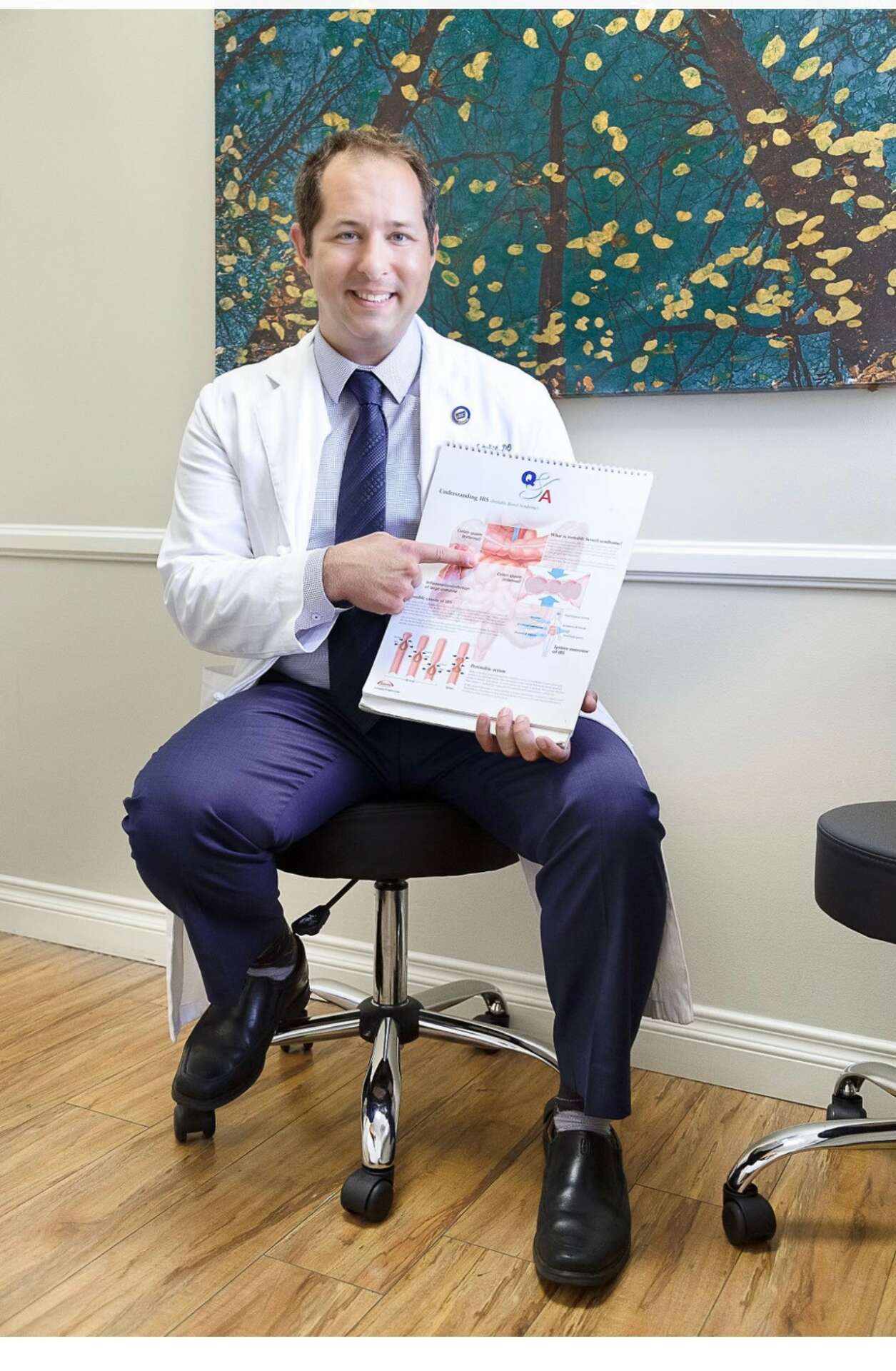
Awesome – so before we get into the rest of our questions, can you briefly introduce yourself to our readers.
We are identical twin brothers who both became surgeons, and we practice in San Diego County and Temecula, as part of the United Medical Doctors multi-specialty group. Mark is an orthopaedic surgeon with fellowship training in shoulder and elbow surgery from the prestigious Kerlan-Jobe Orthopaedic Clinic, and Matthew is a general surgeon with fellowship training in robotic and minimally-invasive colorectal surgery from Houston Methodist Hospital. We got into medicine out of a true desire to help others – as cliched as that may sound, based on our background spending much time abroad in developing countries: these experiences really opened our eyes to the disparities in healthcare that exist around the world, and we felt compelled to learn skills that might improve the quality of life for those in our world community.
What sets us apart from others is the quality of care we provide – from minimally-invasive techniques using robotic surgery, augmented reality, and cutting edge surgical techniques, to the concierge-style of care we give each patient, we focus on empathy, building a strong and trusting doctor-patient relationship, and attaining the best results possible for our patients. Our team treats our patients as if they were family and we’re excited for the opportunity to help patients feel better.
We are proud of the milestones of our practice: Matthew is now the highest volume colorectal and robotic surgeon in Southern California, and has even been a pioneer of single-port robotic procedures. Mark is one of the few shoulder/elbow trained surgeons in the region who has been selected for the American Shoulder and Elbow Surgeons (ASES) and into the honor society, American Orthopedic Association (AOA). We are also proud of the mentorship that we offer to premeds, medical and PA students, residents, and fellows in training, as part of our work as volunteer adjunct professors with UC San Diego, Touro College of Medicine, Rocky Mountain University, and Point Loma Nazerene University. We feel strongly that paying it forward to future generations and creating a positive, supportive culture for our patients and trainees is key to advancing the quality of medical care in our society.
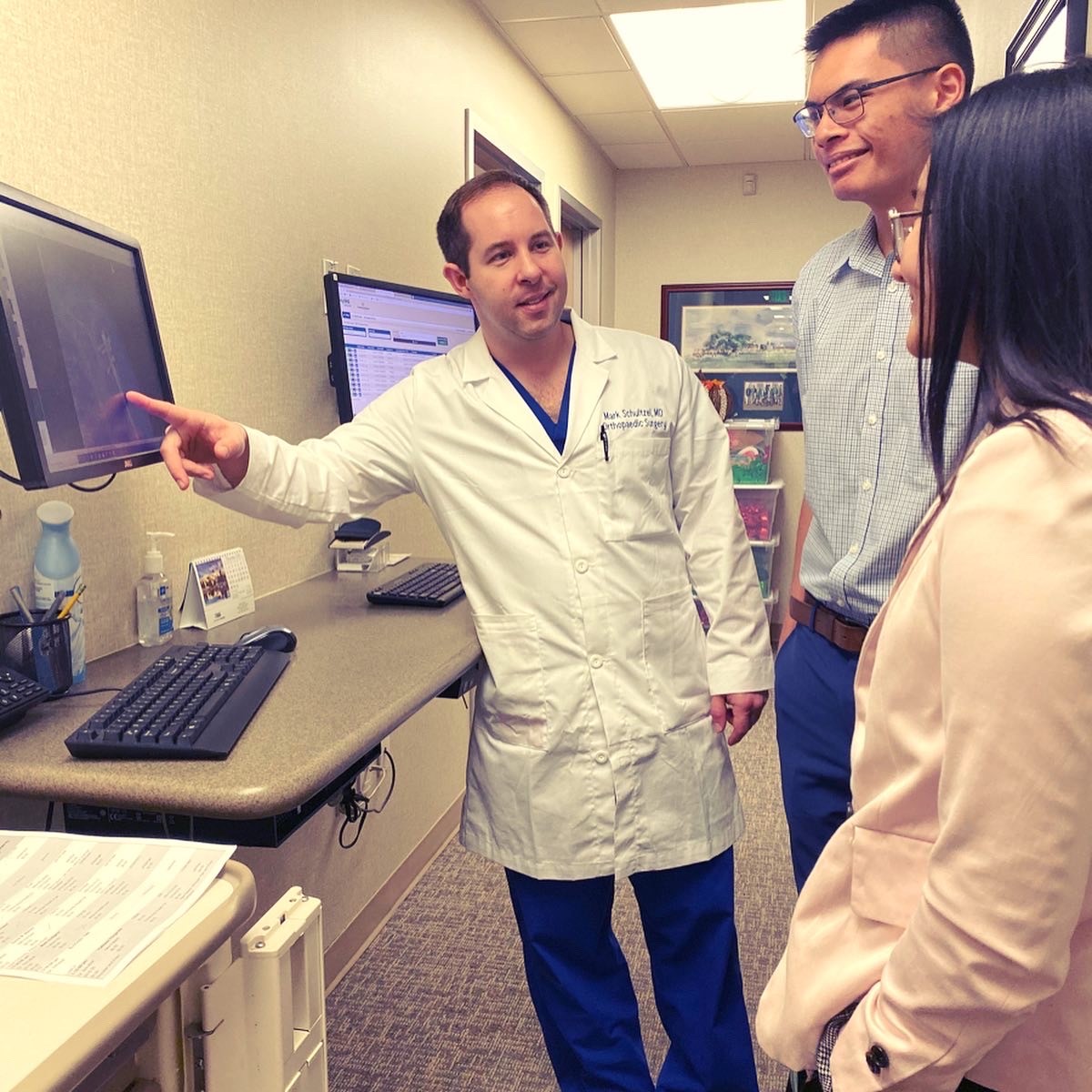
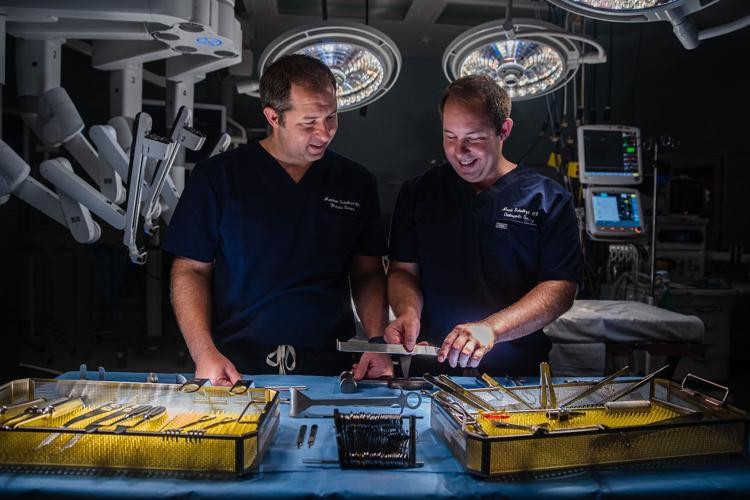
Have you ever had to pivot?
Mark: I started my practice 6 months prior to COVID, having left a disappointing experience in the managed care world, where I felt the quality of care I could provide did not meet my standards. My practice grew quickly, but came nearly to a halt in February of 2020 when COVID hit our shores. Yet I encountered serendipity in that I had started the Master’s of Business Administration program at the Rady School of Management at UC San Diego during this time as well. I pivoted my focus to the MBA, starting Ethos Mask, a masking company that sourced over 50,000 masks to healthcare workers on the front line, and winning start-up awards in the COVID-19 space with the UN Global Social Innovation Challenge. Since then, I used the knowledge gained with the start-up and in school to take on the health-tech sector, becoming Chief Medical Officer for Modiv Health. Now that we have bounced back from COVID, my practice continues to grow in leaps and bounds, but I also now wear the hat of an entrepreneur to help improve the quality of care for not just my practice, but for those in the healthcare community.
Matthew: I pivoted in business when I made the decision to start my own practice. It was a tough choice, especially given how ultra-competitive the practice environment is here in San Diego. By focusing on my patients, developing my brand of medical care, and working hard for the best possible patient outcomes, and not sweating the small stuff, I was able to grow a successful practice. However, this meant working without a day off or vacation for nearly 4 years. Today, I am blessed to be surrounded with an amazing team of like-minded surgeons, PA’s, and NP’s, as well as the support of United Medical Doctors, and we are continually growing and expanding, bringing our high quality of care throughout the region.
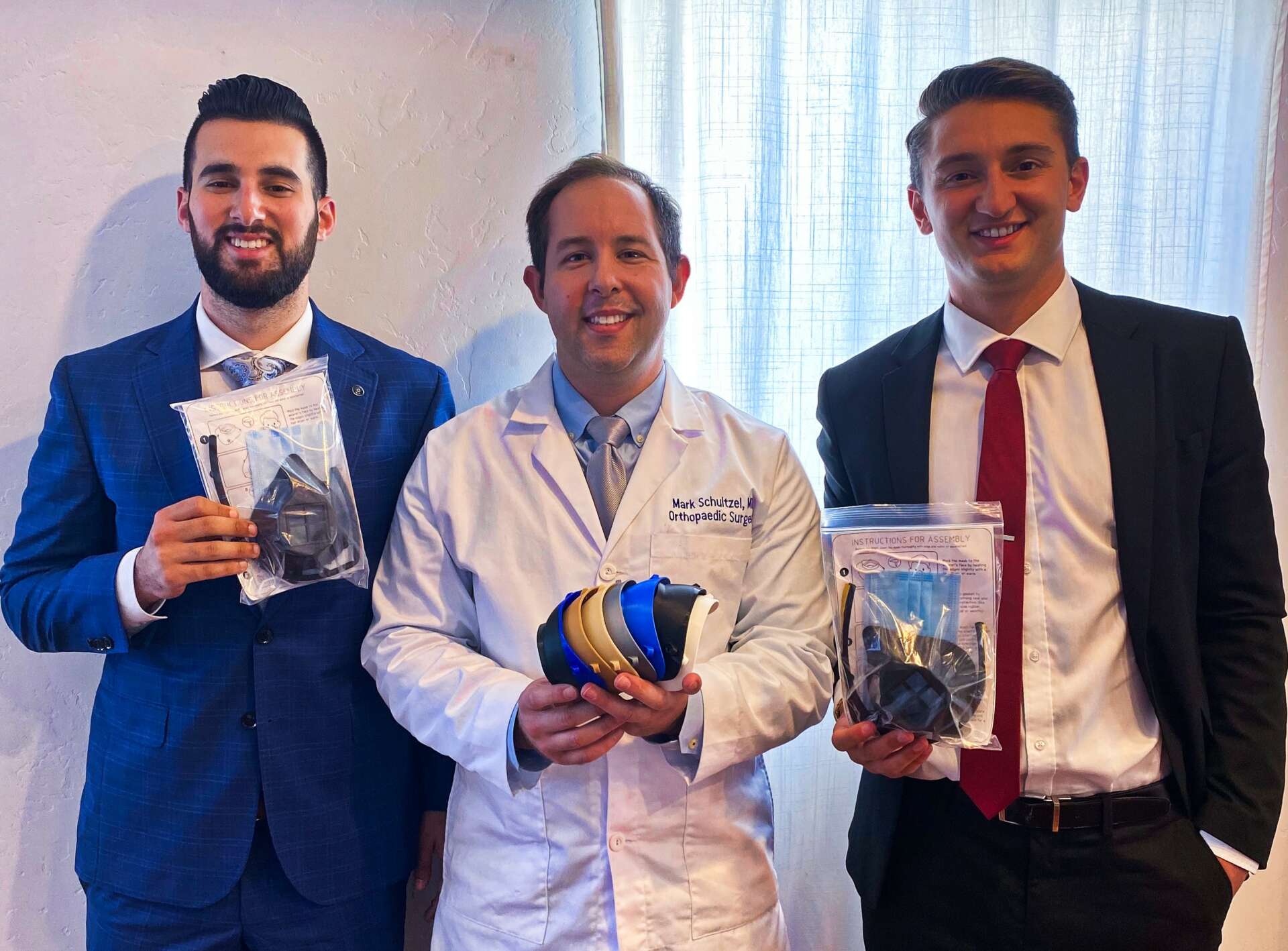
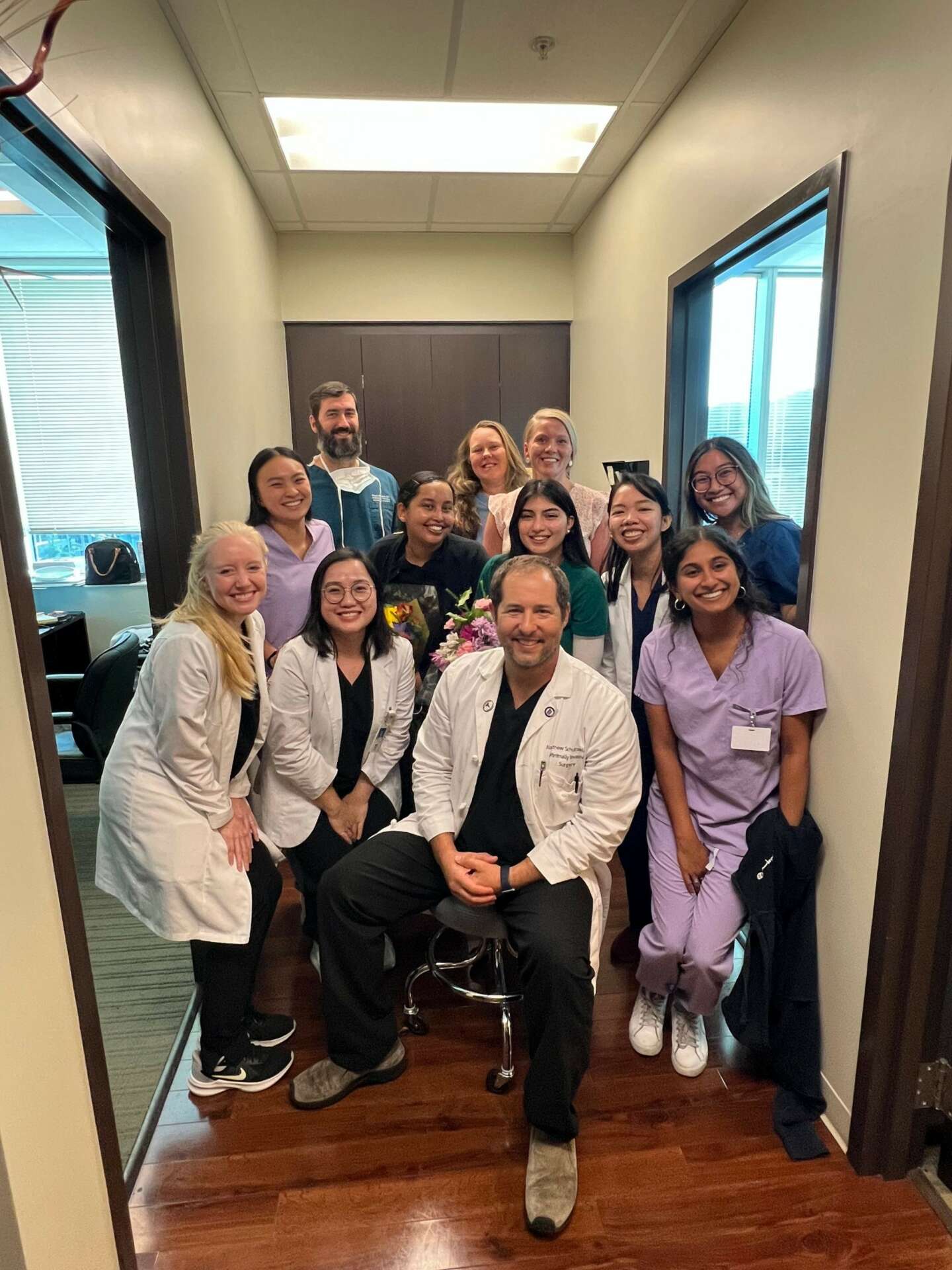
Any advice for managing a team?
Matthew: Our team is made of two (soon to be four!) surgeons, two PA’s, a nurse practitioner, and a squad of medical assistants, medical and PA students, and premed volunteers. Vital to the success of our team has been to create a fun-loving and supportive culture, based on strong work ethic, teamwork, and true enjoyment of medicine. We all work hard on behalf of our patients, but take time for team meals and hangouts, where we grow bonds of teamwork and friendship. Treating each member of my team as important to me, making sure they know that I appreciate their hard work and am there for them if they need support, keeps our morale high, which translates into a happy environment for patients and staff alike.
Mark: Our team is quite similar to Matt’s, with the common thread that we both enjoy employing premedical students who are completing their “gap years” prior to medical school. These students are energetic and bright self-starters who have really transformed the culture in our practices in such a positive way. It’s exciting for me to work with people who will be my future colleagues, and it’s been an honor guiding them along the path to medical school. Their youthful vigor and our shared goal of taking care of patients as a team helps keep or morale high, and just as in Matt’s practice, everyone in the team knowing that they can both lean on each other in times of need or share a laugh or a meal together leads to a more cohesive work environment.
Contact Info:
- Website: Matthew: www.sdcolons.com ; Mark: www.sdorthodoc.com; Both: www.unitedmd.com
- Instagram: @matthewthesurgeon (Matt); @orthokendodoc (Mark)
- Linkedin: Matt: https://www.linkedin.com/in/matthew-schultzel-do-58952b129 ; Mark: https://www.linkedin.com/in/markschultzelmd
- Other: Mark: www.omgsd.com Matt’s Instafamous Great Dane (who is a therapy dog for his cancer patients): @thorvonschultz


